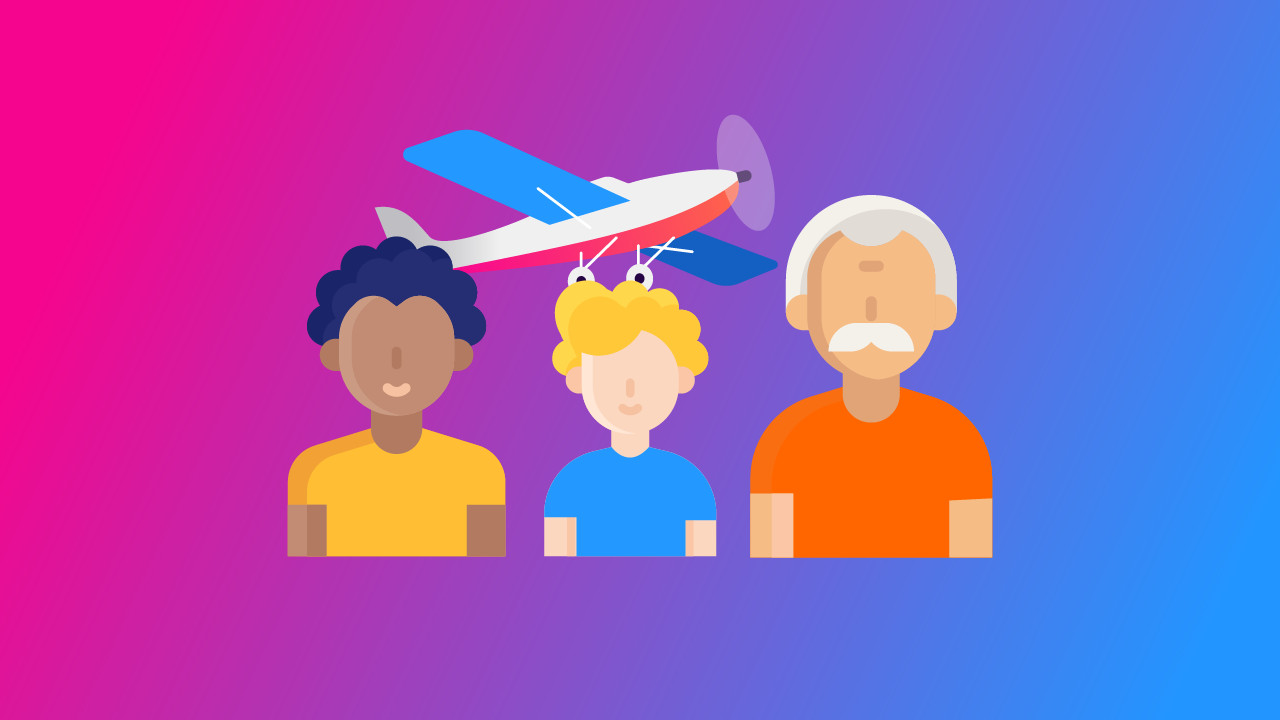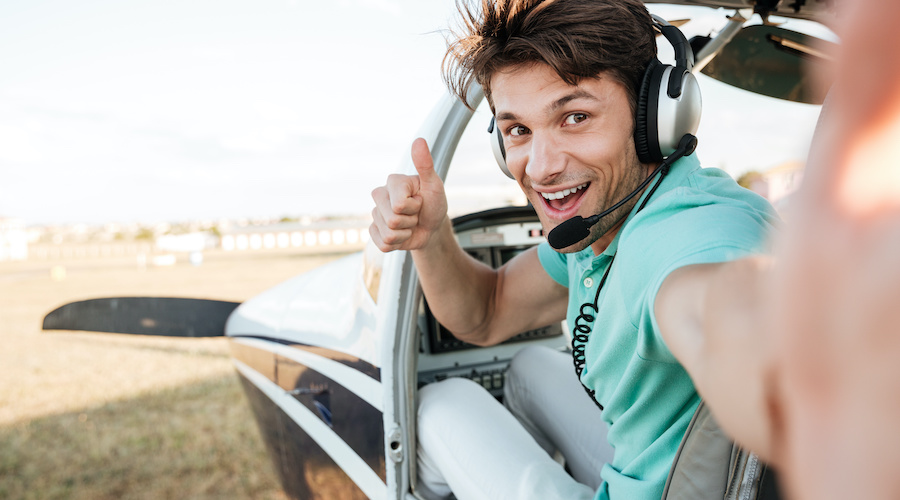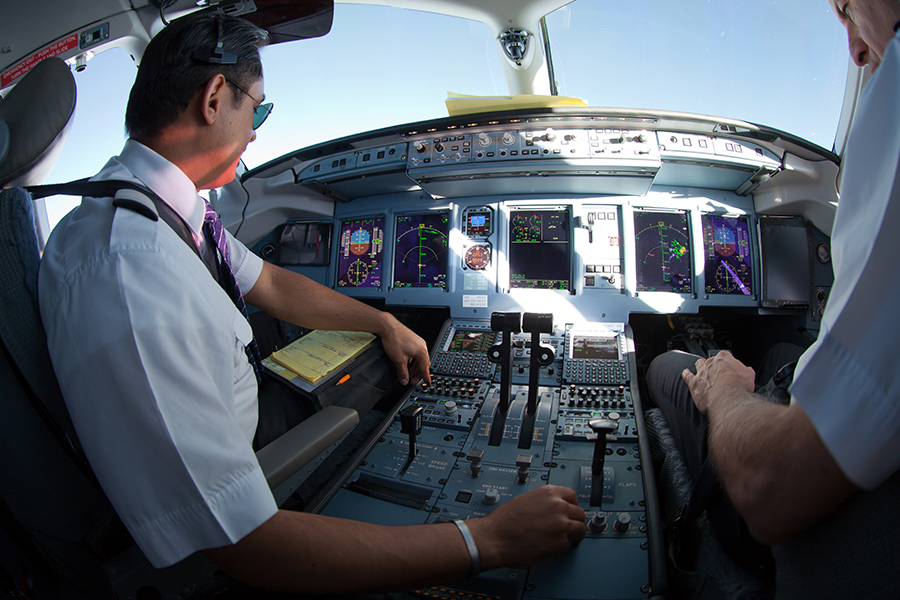-
Key Takeaways
-
What Is the Earliest Age to Begin Pilot Training?
-
How Young Aspiring Pilots Can Prepare
- Attend Aviation Related Programs
- Explore Flight Simulators
- Early Exposure
-
Is There a “Best” Age to Start Pilot Training?
-
Tips for Parents of Aspiring Young Pilots
-
It’s Never Too Late to Start
- Joining an Airline
- General Aviation
- Become a CFI
- Become a Private Pilot
-
Conclusion
Have you ever wondered how old you need to be to start flying an airplane? It’s a pretty exciting thought, right? The truth is, people of all ages can go into aviation—it just depends on what you want to do.
If you’re a young dreamer, you can explore flying through things like simulators or discovery flights.
And for adults, it’s never too late to make those dreams of becoming a pilot a reality.
Let’s take a closer look at when and how you can start your pilot training, no matter your age.
Key Takeaways
- Solo flights require age 16; private pilot certificates require 17.
- Prepare early with aviation programs, simulators, and ground school.
- Start training based on your goals, schedule, and finances.
- Flying is possible at any age—career or hobby!
What Is the Earliest Age to Begin Pilot Training?
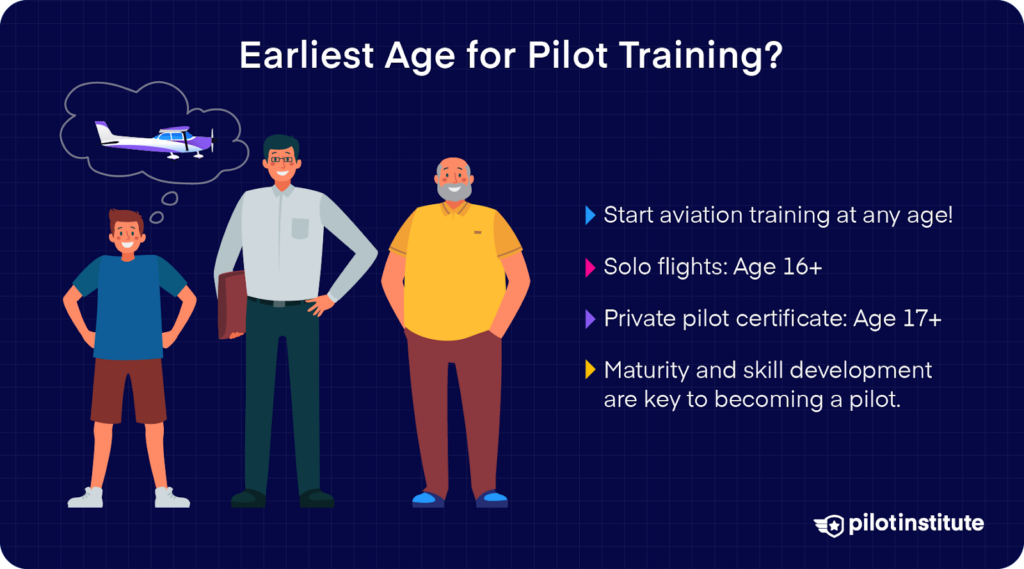
If you’re passionate about an aviation career, it’s best to start as early as possible. The sooner you begin, the more time you’ll have to experience the joy and fulfillment of flying.
But how early can you begin?
Technically speaking, there is no minimum age to start flight training.
But there are some other age requirements that you should know about.
You must be at least 16 years old to be sent solo in an aircraft. To gain your private pilot certificate, you must be at least 17 years old.
Flying an aircraft requires a high level of maturity, responsibility, and sound judgment. Hence why, there are minimum age requirements.
It also allows time for young aspiring pilots to develop the necessary skills to learn how to fly.
How Young Aspiring Pilots Can Prepare
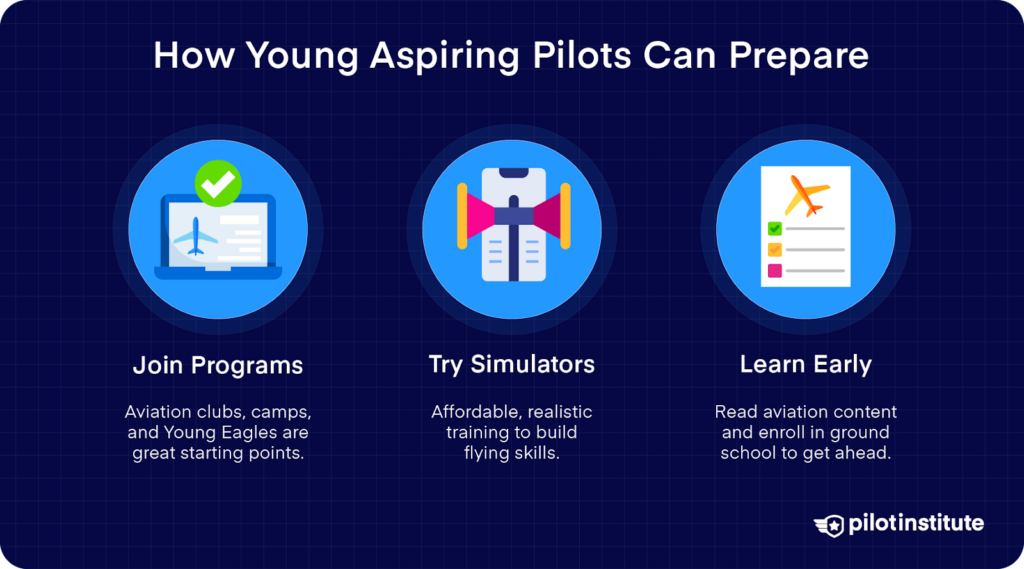
So, how can young aspiring pilots prepare for flight training?
Attend Aviation Related Programs
It can be hard to network and meet people if you don’t know anyone in the aviation industry.
Joining aviation clubs is a great way for kids aged 12 to 15 to meet new people and learn about the industry.
Attending aviation summer camps will expose aspiring pilots to flying so they can see if it’s for them.
Programs like the Young Eagles are designed to allow young people to learn about flying and the basics of aviation. This can provide a great head start.
Explore Flight Simulators
We all know that flying is expensive. But once you have set up a flight simulator, you can fly for free!
Flight simulators are a great way to prepare young pilots for flight training.
These days, flight simulators are impressively realistic. Flying feels ‘real’ thanks to the latest technology and high-definition graphics. Thus, the skills learned through flight simulators will directly transfer to real-life training.
Early Exposure
The more time you have to practice, the better you will be.
Reading aviation content will help solidify the basics of flight theory. Having this knowledge before flight training will give you more time to focus on advanced concepts.
If you’re interested in an aviation career, it is recommended that you enroll in ground school as soon as possible. The more exposure, the better.
Is There a “Best” Age to Start Pilot Training?
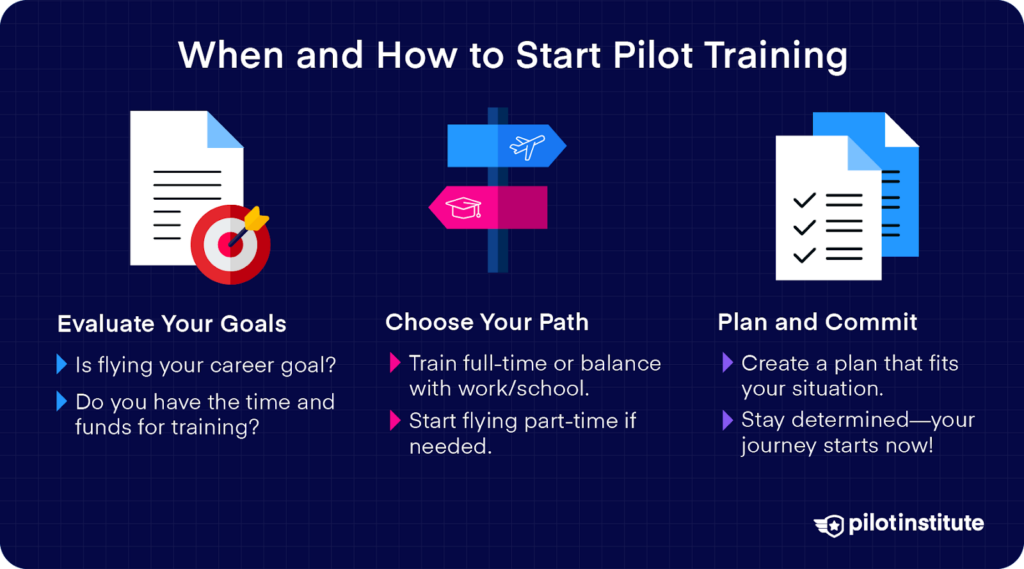
So, is there a ‘best’ age to start pilot training?
This might not be the answer you’re looking for, but there’s no one-size-fits-all age.
Starting flight training can depend on various factors. Such as career goals, personal schedules, and financial readiness.
In general, the earlier you begin, the better. With some caveats, of course.
You must assess your situation and decide how you would like to carry out your training.
Ask yourself these questions:
- Do I have the funds to train full-time?
- Do I have the time to train full-time?
- Do I see myself becoming a pilot as a career?
If you answered yes to all of these questions, a full-time flight school is for you. This will allow you to complete training as quickly as possible.
If you answered no to the first question, you could work full-time to fund your training. Or start training part-time while you work to fund it.
Do you have the time to train full-time? If you answered no to this question, perhaps you’re still in school. Before starting flight training, you should focus on finishing school. This will ensure you get the required grades to become a pilot.
Or, if you’re eager to start, maybe you could fly in your spare time after school or on the weekends.
As you can see, there is no definitive age to start flight training. It all depends on your personal situation and circumstances.
The best thing you can do is sit down and create a plan that best suits you. No matter what path you take, if you’re determined, you hold the power to successfully become a pilot.
Tips for Parents of Aspiring Young Pilots
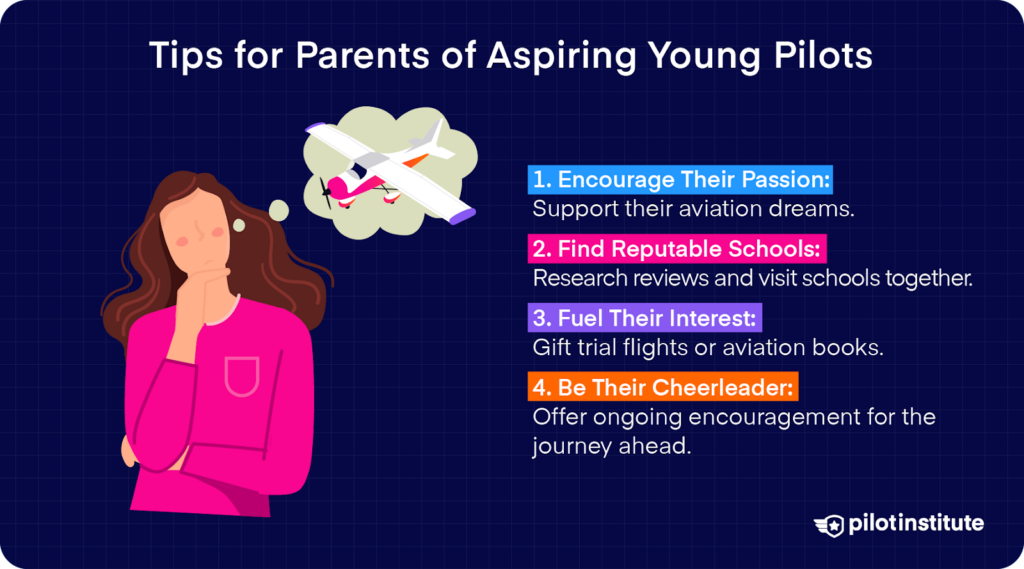
We all want our children to succeed as parents. So, how can you help if your child is an aspiring young pilot?
The number one thing you can do is support and encourage your child with their passion.
You can help by providing guidance on finding reputable flight schools or instructors.
Looking at reviews online or by word of mouth is a great way to find reputable schools. Taking them to the school for an orientation will get them excited to start their training.
If you’re unsure what to get them for their birthday, perhaps a trial flight or aviation-related book. This would be a perfect gift to keep their passion fuelled.
Aviation can be a long and sometimes grueling journey. So, the more encouragement and support, the better.
It’s Never Too Late to Start
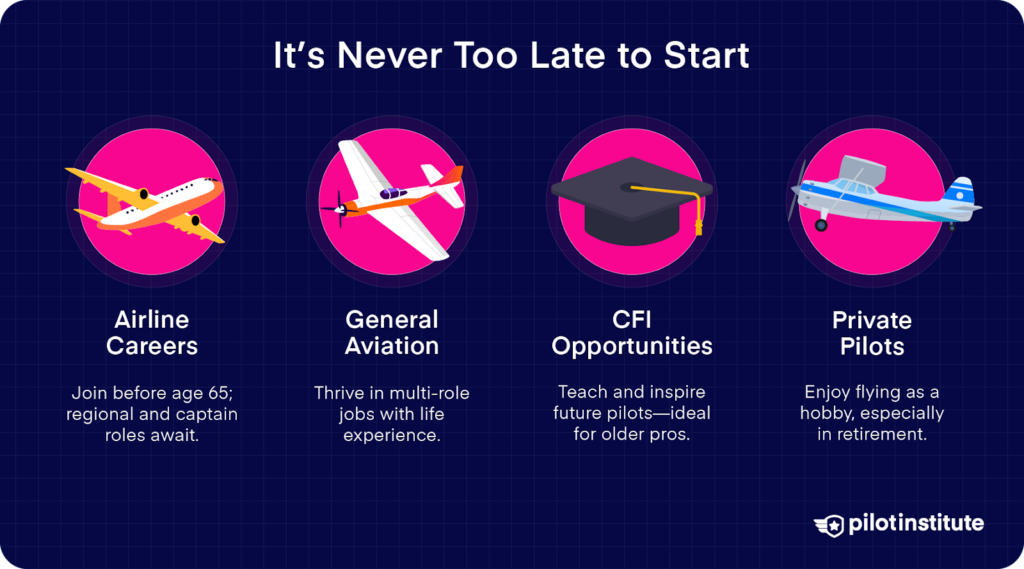
The theme throughout this article has been to start flying as soon as possible. But it is also never too late to start.
Joining an Airline
If you are looking for a career change, you have to be realistic with your goals.
Most airlines will require you to retire at the age of 65. So, if you want to become an airline pilot, you can base your career on this.
Older pilots aspiring to join the airlines can still have a great career if they pursue this route. Many of them can achieve captain roles in regional and major airlines.
General Aviation
Although many aspire to be airline pilots, a career in general aviation can be just as rewarding.
General aviation operators often require pilots to have multiple roles in addition to flying. This is because these organizations are generally smaller compared to airline operations. Preferring the pilot to be a “jack of all trades.”
The roles will range from dealing with passengers to loading aircraft and completing load sheets.
Since older pilots have more life experience, they tend to thrive in this sector. So, being older will give you the upper hand when looking for a job.
This is also comparable to the private charter and medevac sectors.
Become a CFI
Becoming a CFI is a fantastic way to leave your mark on aviation.
The sense of achievement in training students is second to none. It is truly rewarding to pass on your knowledge and prepare students for a successful career.
Many ex-military veterans in their 50s and 60s have been seen to have great careers instructing. The job is more 9-5 oriented, and you don’t have to travel, making it more appealing for older pilots.
Become a Private Pilot
But what if you don’t want to be a commercial pilot? Then, it’s never too late to become a private pilot.
As long as you can hold a medical and pass the required checks and exams, then you’re good to go.
Many people turn to aviation in retirement as they have the money and time for it. Joining aviation clubs is a great way for them to socialize and keep busy.
Are you looking at starting your training?
If so, check out Pilot Institutes Private Pilot Made Easy course. This gives you the option to start studying and preparing for the written exam prior to training.
Conclusion
Flying is one of the most incredible things you can do, and there’s no magic age to start. It doesn’t matter if you’re 12, dreaming of airplanes and clear skies, or an adult ready to take the leap. No matter where in life you are, there’s a path for you.
It might take time and effort, but with the right tools and training, anyone can learn to fly.
So, why not take the first step and see where your aviation adventure can take you? The skies are waiting for you!
